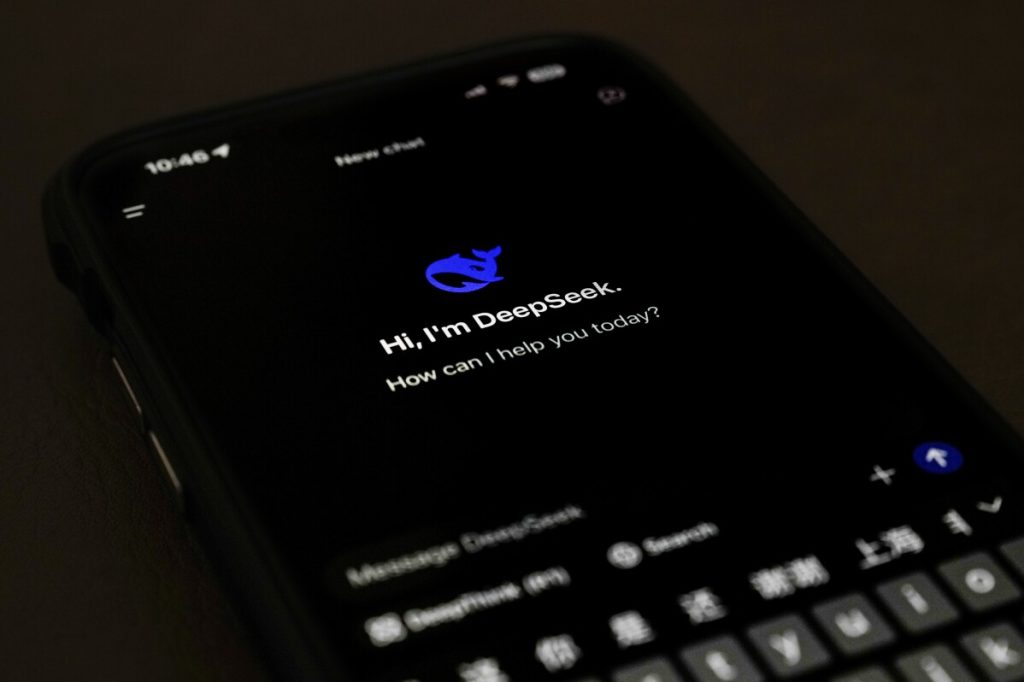Chinese artificial intelligence firm DeepSeek is a “profound threat” to US national security, a bipartisan House committee said, urging Nvidia to hand over information on sales of chips that the startup may have used to develop its breakthrough chatbot model.
The House Select Committee on China alleged in a report Wednesday that DeepSeek’s ties to Chinese government interests “are significant,” citing corporate filings obtained by the panel. Lawmakers claimed that DeepSeek’s founder, Liang Wenfeng, controls the firm alongside the High-Flyer Quant hedge fund in an “integrated ecosystem” linked to state-linked hardware distributors and Chinese research institute Zhejiang Lab.
“Although it presents itself as just another AI chatbot, offering users a way to generate text and answer questions, closer inspection reveals that the app siphons data back to the People’s Republic of China (PRC), creates security vulnerabilities for its users, and relies on a model that covertly censors and manipulates information pursuant to Chinese law,” the committee said in the report.
The panel said its inquiry found that DeepSeek is powered by “tens of thousands of chips,” and the firm may have circumvented US export controls in acquiring them. Pointing to information from analytics firm SemiAnalysis, lawmakers said DeepSeek has at least 60,000 Nvidia processors, with orders for “thousands” more of the company’s H20 chips.
Committee Chairman John Moolenaar, a Republican from Michigan, and the panel’s top Democrat, Representative Raja Krishnamoorthi, separately asked Nvidia for information on customers from 11 Asian countries that bought more than 499 AI chips since 2020. In a letter sent to Nvidia Wednesday, the lawmakers singled out from Malaysia and Singapore, as well as the entities ultimately using the chips. The company has until April 30 to respond.
Nvidia said in a statement that it follows “the government’s directions to the letter” when it comes to US export restrictions. The Santa Clara, California-based company added that in the case of Singapore, its “products are shipped to other locations, including the United States and Taiwan, not to China.”
DeepSeek didn’t immediately respond to a request for comment.
Chinese embassy spokesperson Liu Pengyu rejected the committee’s claims as “groundless.” In a statement, Liu said that “the Chinese government attaches great importance to data privacy and security and protects them in accordance with the law. It has never required, nor will it require, companies or individuals to illegally collect or store data.”
The committee’s report on DeepSeek, combined with its pressure on Nvidia, mark an escalation in US government scrutiny of Chinese technology ambitions that some believe pose national security concerns. DeepSeek, founded in 2023, rose to prominence earlier this year when it released an open-source AI model that can mimic the way humans reason, prompting questions in Washington about how the firm achieved its breakthrough.
DeepSeek has said it outperformed some leading AI companies on certain benchmarks and claimed it trained the model for $5.6 million, a far lower cost than US competitors. It sparked a selloff in tech stocks and upended the assumption that developing cutting-edge AI would require billions of dollars and enormous computing capacity.
The panel’s report emerged after Nvidia reported that it would incur writedowns of as much as $5.5 billion in the current quarter owing to new restrictions from the Trump administration on sales in China of its H20 chip, a device tailored to comply with previous US export curbs.
The panel, referring to findings from cybersecurity researchers at Feroot Security, also said that Hangzhou-based DeepSeek collects extensive user data that it transmits “through back-end infrastructure connected to China Mobile,” a Chinese telecom provider banned from the US market in 2019.
In its report, which cited testimony from OpenAI, the committee claimed that DeepSeek likely used “unlawful” distillation techniques, whereby one AI model uses the outputs of another for training purposes to develop similar capabilities.
OpenAI told the panel that DeepSeek employees “circumvented guardrails” to extract reasoning outputs and accelerate development at a lower cost and claimed the Chinese startup used its models “to grade model responses and filter and transform training data.” The ChatGPT maker also said it believed “DeepSeek likely also used leading open-source AI models to create high-quality synthetic data.”
In January, Bloomberg reported Microsoft and OpenAI were investigating whether data output from OpenAI’s technology was obtained in an unauthorized manner by a group linked to DeepSeek.
The committee recommended expanding export controls and imposing federal procurement prohibitions on AI models from China.
President Donald Trump has called DeepSeek’s progress a “good” thing and said the release of the AI assistant from a Chinese startup “should be a wake-up call for our industries that we need to be laser-focused on competing to win.”

